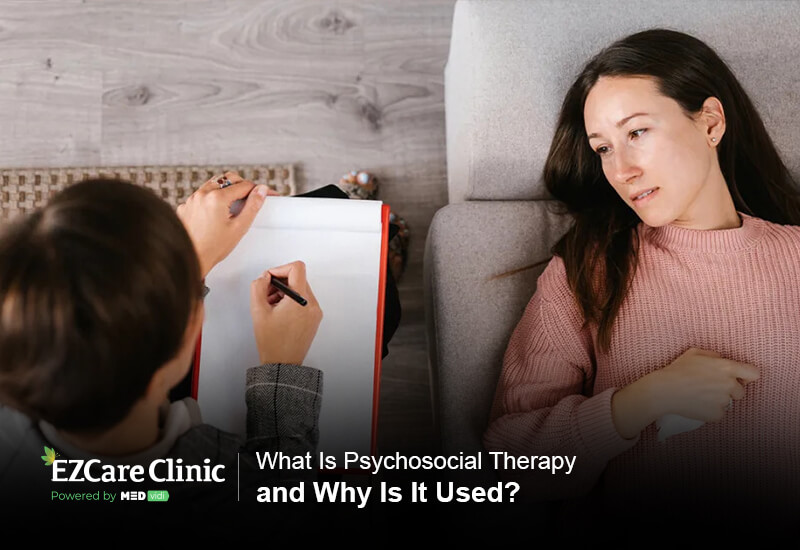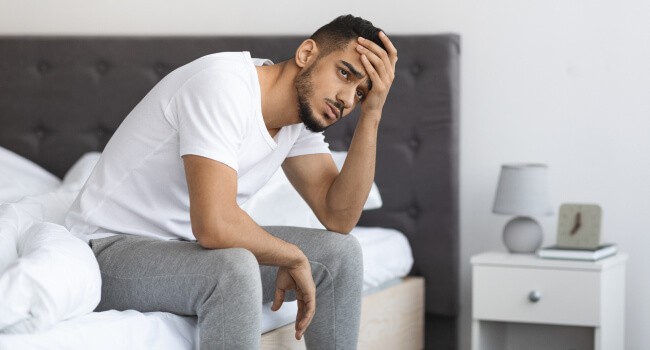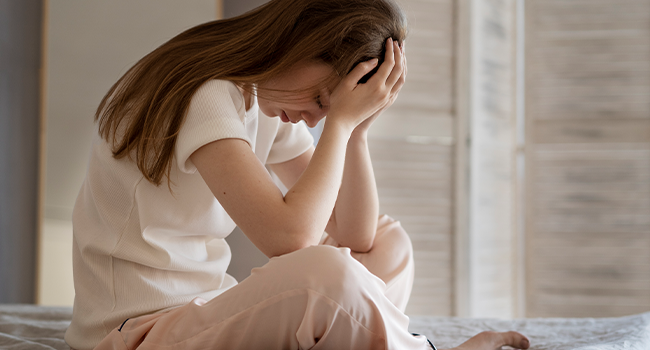Their inclusion does not guarantee they will be prescribed to any individual, as treatment decisions are ultimately at the discretion of healthcare providers. Healthcare providers may prescribe other medications or recommend non-pharmacological treatment based on the patient’s unique health circumstances and needs. Read more
Zepbound (tirzepatide) has a
You’d really like to lose some weight, and after research, you’re considering a weight loss injection. But people on social media report losing hair on Zepbound, which is the one you are most interested in, and that worries you. This article discusses everything about hair loss and Zepbound, as well as why there’s a link, what to expect, and how to prevent it.
Highlights
- Hair loss is a relatively commonly reported side effect of Zepbound.
- The mechanism of hair loss is due to telogen effluvium, a process triggered by anything that disrupts the hair follicle.
- In the case of Zepbound, the leading trigger of telogen effluvium and hair loss is thought to be rapid weight loss, causing physiological stress.
- Zepboud causes temporary hair shedding, which reverses once weight stabilizes or the medication is stopped.
Can Zepbound Cause Hair Loss?
Unfortunately, hair loss is a common side effect of Zepbound (tirzepatide); at least 5 out of every 100 patients experience it, according to the prescribing information, and it
Tirzepatide hair loss is usually temporary and typically starts at least three months after starting Zepbound; hair shedding is more frequent in patients treated for diabetes than in people requiring weight management.
Importantly, hair loss is not only seen with Zepbound but also with other GLP-1 receptor agonist weight loss medications, such as Mounjaro, Ozempic, and Wegovy.
Let’s take a closer look at why.


Why Does Zepbound Cause Hair Loss?
There are many theories as to why Zepbound affects hair health, and they all center around something with a fancy name, telogen effluvium (TE) hair loss. To understand this, you need to quickly learn about
Most healthy adults have 80,000 to 120,000 hairs on their heads that go through the following phases:
- Growth (anagen) phase: This lasts 2 to 6 years, and usually, 9 out of 10 hair follicles are in this phase.
- Resting (telogen) phase: After growing, the hair follicle becomes inactive and rests for about 3 months; in normal conditions, 1 out of 10 hairs is in this phase.
- Shedding phase: Inactive or dead hair drops from the scalp; as a rule, this is about 100 hairs a day.
Assuming 100,000 hairs on the head
| Normal | After trigger/stress | |
| Growth | 90,000 | <= 50,000 |
| Resting | 10,000 | > 50,000 |
| (3 months pass) | ||
| Shedding | 100/d | > 500 |
Some of the factors that may interfere with hair follicle health, triggering hair loss, include:
- Hormone changes, like in pregnancy or menopause.
- Nutrient deficiencies, such as Vitamin D and iron.
- Chronic medical conditions, for example, thyroid problems and autoimmune diseases.
- Emotional stress, like divorce or the death of a loved one.
- Physical stress, such as surgery or injury.
- Medication (can directly act on the hair follicle or affect it indirectly by causing one of the triggers above).

Look at Zepbound as an example; here are some ways that it might affect hair growth.
Direct Action of Zepbound
One theory is that tirzepatide directly disrupts the normal hair growth cycle.
Higher Dosages
Zepbound hair thinning, like many other side effects, is more likely to happen at higher doses.
Stress on the Body
Both physical and emotional stress can cause hair loss; this can happen because the stress hormone
Caloric Restriction
Zepbound is a medication that suppresses appetite and reduces cravings for sugars and carbohydrates. This low-calorie diet decreases the instantly available energy to fuel hair follicle growth, but can also
Nutritional Deficiencies
Again, a decreased appetite may lead to skipping meals; not eating enough of certain foods might result in nutrient imbalances and unhealthy hair follicles. Another reason for Zepbound deficiencies is decreased nutrient absorption caused by vomiting and delayed gastric emptying.

Hormonal Changes
Estrogen levels drop in women who lose excessive weight, and
Brings Out Underlying Conditions
Sometimes, preventing hair loss may be difficult, as Zepbound weight loss may accelerate pre-existing conditions. One example is premature androgenetic alopecia, or


Is Zepbound Hair Loss Permanent?
Hair loss due to Zepbound is a temporary shedding, and hair usually grows back completely, without any treatment, when the trigger disappears or the body adjusts. It is a long process; from the time the trigger stops, it’s typically about 3 to 6 months before the hair starts to grow again. And then, it lengthens at about
If you have hair loss on Zepbound, and it’s not following this timeline, please consult a healthcare professional.
There are no statistics on persistent hair loss from Zepbound, implying that if such cases occur, they are extremely rare.
How to Prevent and Treat Zepbound Hair Loss
To stop hair loss on Zepbound, you must decrease the trigger intensity and ensure your hair follicles are in the best possible health. Here are some ways to do this:
Address Any Zepbound Triggers
Make Sure You Don’t Lose Too Much Weight Too Fast
It is more likely that hair will fall out on Zepbound if you lose weight rapidly, as the body has difficulty adjusting and is more stressed. Avoid this by asking your healthcare provider how to lose weight slowly and steadily.
Consider a Lower Dosage
Consider asking your doctor if a lower dose of Zepbound would be appropriate in your case to reduce the risk of side effects and avoid hair loss.
Address Any Underlying Medical Conditions
Your doctor may exclude other causes of hair loss, some of which are an underactive thyroid or iron deficiency.
Manage Stress Levels
Manage emotional stress with deep breathing, relaxation methods, good quality sleep, and support groups.
Encourage Hair Growth
Gentle Hair Care
Look after your hair and don’t stress the follicles; avoid excessive heat styling, tugging them with tight hairstyles, and irritating them with harsh cleansers and chemical treatments. Instead, use sulfate-free shampoos, hydrating conditioners, and heat protection.
Balanced Diet
Ensure you’re eating a nutrient-rich diet with adequate protein intake before and while taking Zepbound. This is essential for your overall health and might help protect your hair follicles. To help you with this, consider working with a nutritionist.
Supplements for Hair
Ask your doctor if you’d benefit from a specially formulated hair, skin, and nails supplement to support hair regrowth. These are usually readily available over the counter and contain iron, zinc, biotin, and vitamin D.
Scalp-Stimulating Treatment
Prescribed hair loss treatments that may stop hair thinning and promote hair growth might be appropriate in certain circumstances; examples are minoxidil and finasteride, but your doctor will guide you on this.
Scalp Massage
Scalp massage is excellent for scalp health and relieves stress and muscular tension. It increases blood flow and removes hair product buildup and dead skin cells.
Importantly, these suggestions might not work for everybody, and there are situations when you should chat with a doctor.
When to Talk to Your Healthcare Provider
Some signs and symptoms suggest other causes for hair loss or require stopping the Zepbound. You should seek professional help if any of the following occur:
- Unusual hair loss patterns such as patchiness, one-sided, or circular baldness.
- Scalp itching, scaling, or redness.
- Menstrual changes or facial hair growth in females.
- Severe fatigue.
- Anxiety that doesn’t ease.
- Persistent or excessive hair loss.
Every situation is different, and if your healthcare provider decides that the best choice is stopping Zepbound, the good news is that there are other weight loss medications to try.
Conclusion
Although Zepbound causes hair loss in some people, it is temporary, and there are ways to lessen this side effect.
Now that you feel reassured, take the next step towards getting a Zepbound prescription; medical providers at MEDvidi are here to help by answering any more questions you may have and can issue a script online if deemed appropriate, so book your online weight loss consultation today.
Frequently Asked Questions about Zepbound and Hair Loss
Will Zepbound make me lose my hair?
Unfortunately, Zepbound does cause hair loss in about 5 out of 100 people who use it. The good news is that it is temporary, and you can minimize the risk by slowing weight loss and keeping hair follicles healthy.
How common is hair loss with Zepbound?
In trials, hair loss occurred in at least 5 out of every 100 people using Zepbound, making it a common side effect.
Why am I losing so much hair on Zepbound?
The main reason you are experiencing hair loss on Zepbound is that it causes rapid weight loss, which stresses the whole body, disrupting the hair growth cycle.
How do you know if your hair is falling out from Zepbound?
You will know if your hair is falling out from Zepbound when you see more hair than usual in your hairbrush or in the bath or shower after washing your hair, a couple of months after starting the medication. It’s always best to consult your healthcare provider about potential causes.
How to grow hair back from Zepbound?
Hair loss from Zepbound is usually temporary, and hair starts to grow back without any specific treatment after your weight stabilizes or you stop the medication.













